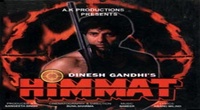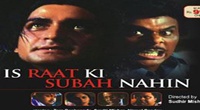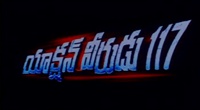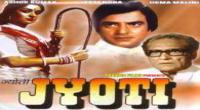This article needs additional citations for verification. (October 2010) (Learn how and when to remove this template message) |
Sátántangó (Hungarian: ; meaning 'Satan's Tango') is a 1994 Hungarian art drama film directed by Béla Tarr. Shot in black-and-white, it runs for more than seven hours. It is based on the novel Satantango by Hungarian novelist László Krasznahorkai, who had been providing Tarr with stories since his 1988 film Damnation. Tarr had wanted to make the film since 1985 but was unable to proceed with the production due to the strict political environment in Hungary.
| Sátántangó | |
|---|---|
Estike (Erika Bók) in the Facets Video DVD cover | |
| Directed by | Béla Tarr |
| Produced by | György Fehér Joachim von Vietinghoff Ruth Waldburger |
| Screenplay by | Béla Tarr László Krasznahorkai |
| Story by | Mihály Vig Péter Dobai Barna Mihók |
| Based on | Satantango by László Krasznahorkai |
| Starring | Mihály Víg Putyi Horváth László Lugossy |
| Music by | Mihály Víg |
| Cinematography | Gábor Medvigy |
| Edited by | Ágnes Hranitzky |
Release date |
|
Running time | 432 minutes |
| Country | Hungary Germany Switzerland |
| Language | Hungarian |
In the years since its release, Sátántangó has received wide acclaim from film critics, and is considered one of the greatest films ever made. In 2012, it appeared in the British Film Institute's Sight & Sound critics' top 50 films.
Screenplay
In a desolate village, after the collapse of a collective farm, Futaki is having an affair with Mrs. Schmidt (Éva Almássy Albert), as he is awakened at dawn by the ringing of church bells. Mr. Schmidt (László Lugossy) conspires with another co-worker to steal the villagers' money and flee to another part of the country. As Futaki is sneaking out of the Schmidt home, he discovers Schmidt's plans, after which he demands to become part of the scheme—all of this being watched by a lonely drunk man known as the Doctor (Peter Berling), who writes the events down in a notebook. However, the conspiracy is terminated when rumors spread across the village that the charismatic and manipulative Irimiás (Mihály Vig), a former co-worker who had been presumed dead, is returning. Meanwhile, Irimiás and his friend Petrina (Putyi Horváth) make a secret deal with a Police Captain in a nearby city, to spy on the community.
At the village, the Doctor discovers he has run out of fruit brandy. Unaccustomed to abandoning his house, he decides to go out to buy liquor nonetheless. Outside, he is met with hostile weather and the arrival of the night. After purchasing his brandy, he is approached by Estike (Erika Bók), a young girl who desperately reaches out for his help. Behaving aggressively towards the child, the Doctor reconsiders and naively tries to apologize as the girl leaves and disappears in the darkness. Chasing after her, the Doctor passes out, and collapses in nearby woods, and is found in the morning by the town's conductor who takes him to a hospital.
The morning before the Doctor left his house, Estike is tricked by her brother, Sanyi (András Bodnár), into planting a "money tree" somewhere in the wasteland. She tortures and poisons her cat to demonstrate that she has some control over something in her life. After finding out she has been deceived by her brother and trying in vain to recover her money, she succumbs to silent despair, devastated by what she's done to her pet. Dangerously marauding in the woods, the girl approaches the local bar, and peers through its window, where most of the villagers dance to accordion music, unaware of the child's voyeurism. Afterwards, she encounters the Doctor and cries out for his help to save her cat. Rebuffed, she retreats into an abandoned ruin and poisons herself.
The following day, Irimiás arrives at the village while Estike's funeral is being held. Filled with grief, Irimiás speaks to the villagers hatefully and convinces them of handing him the money of their proposed venture in order to start a new collective farm in another city. The villagers travel together to a distant abandoned building, where they collapse into sleep and have intense nightmares. Meanwhile, Irimiás and Petrina meet with an accomplice in a nearby city to acquire explosives, for reasons never explicitly explained.
The next day, Irimiás tells the villagers that the plan to establish a new farm has been delayed and that their only hope of establishing a farm is to scatter around the country for an unspecified amount of time. Schmidt and Kráner (János Derzsi) demand Irimiás return their money. Irimiás agrees, but upon expressing his disapproval at their lack of trust, the villagers shamefully return the money. After traveling in a truck to the city, each of the villagers is assigned a different task by Irimiás and dismissed, except for Futaki, who tells Irimiás that he would rather get a job as a watchman, and leaves on his own.
Government officials receive Irimiás' report detailing the villagers' descriptions, abilities and defects, and decide to re-write it in a more bureaucratically friendly way before filing it away and leaving for home.
The Doctor returns home several weeks later, unaware that Irimiás had taken the entire community with him. As he sits down to write some notes, the same bells that woke Futaki up start ringing. The Doctor decides to leave his house once more to investigate the ruined church where the closest bell is heard. He discovers a madman in the middle of ruins desperately ringing the bells and shouting that Turks are coming. Frightened, the Doctor returns home, muttering nihilistic thoughts. The bells keep on ringing as he covers his windows with boards, completely submerging himself in darkness as he writes the narration that began the film.
- Mihály Víg as Irimiás
- Putyi Horváth as Petrina
- László Lugossy as Schmidt
- Éva Almássy Albert as Mrs. Schmidt
- János Derzsi as Kráner
- Irén Szajki as Mrs. Kráner
- Alfréd Járai as Halics
- Miklós Székely B. as Futaki
- Erzsébet Gaál as Mrs. Halics
- Erika Bók as Estike
- Peter Berling as The Doctor
Structure
The structure of the film is based on that of the novel, which borrows, as its title suggests, from tango. The film is broken into twelve parts, and does not necessarily move chronologically, as it follows the tango scheme of going six moves forward, then six back (hence 6 + 6 parts in total). The twelve parts are titled as follows (in original Hungarian and translation):
- A hír, hogy jönnek
- Feltámadunk
- Valamit tudni
- A pók dolga I.
- Felfesl?k
- A pók dolga II (Ördögcsecs, sátántangó)
- Irimiás beszédet mond
- A távlat, ha szemb?l
- Mennybe menni? Lázálmodni?
- A távlat, ha hátulról
- Csak a gond, a munka
- A kör bezárul
Long takes
The film is composed of long takes, a trait found in Tarr's work. Tarr's adoption of this style has led many people to draw parallels between Tarr and Andrei Tarkovsky, both of whom opted to let their films play out at a more meditative pace. According to Tarr himself, there are roughly only 150 shots in the entire film. Many shots last up to nearly 10–11 minutes, such as several dance sequences, during which the camera rarely moves, but we see the main characters dance and drink. Tarr has said that the cast was actually drunk during these scenes.
The opening shot, in which the camera tracks alongside a herd of cows, lasts nearly 8 minutes. There are shots depicting main characters walking (and talking) for minutes at a time, unimpeded by a cut. Whereas films that feature long takes usually have many short takes to offset the long ones, this film does not.
The book and the film
This film is based on literary sources and had a screenplay, but much of it was still improvised on set. Tarr had this to say on the subject of having a screenplay, but on his filming method in general:
No, we never use the script. We just write it for the foundations and the producers and we use it when looking for the money. The pre-production is a very simple thing. It takes always a minimum of one year. We spend a year looking all around and we see everything. We have a story but I think the story is only a little part of the whole movie.
An omniscient narrator can be heard at several points throughout the film, textually quoting parts of the novel. It also adapts every single one of the moments in the book, leaving nothing out.
Music
Mihály Víg, who plays Irimiás in the film, was Béla Tarr's film composer since working on Almanac of Fall in 1984, until the director's retirement in 2011 with the film The Turin Horse. Tarr has described his collaboration with Víg, as well as that with his wife and editor Ágnes Hranitzky and cinematographer Fred Kelemen, as "collaborative filmmaking", in which each one of their individual works stands as a relevant production of its own. As with Damnation (1987) and all of Tarr's work since 1994, Sátántangó utilizes a small set of original compositions by Víg that play at strategic points of the film, to establish connections between themes or situations.
For Sátántangó, Víg composed a type of score that has been described as "carnivalesque" by Tim Brayton. It is composed of melancholic and haunting accordion themes, reminiscent of a slow and repetitive tango. The most prominent musical theme of the film is "Rain II", which is featured at most of the film's signature moments. Three tango suites play once at separate moments of the film, "Galicia" and "May I Have This Tango?" in "The Job of the Spider II"—while the villagers feast as Estike watches from outside the bar—and "Circle Dance II" after the villagers arrive at the new building that is supposed to be their farm, while the camera goes through their faces and emotions. Additionally, a sound effect-like deafening tune is used as the background for the ringing of the church bells, playing constantly throughout the film. In the 2009 compilation "Music From the Films of Béla Tarr", all of the mentioned tracks appear, and the latter is listed as "Bell I" and "Bell II."
As with the novel upon which it is based, Sátántangó deals with strong pessimistic philosophical themes surrounding the absence of authority, the prevalence of nihilism, and the evils of indifference. The opening shot, lasting up to 10 minutes, depicts a vast herd of cows wandering in a desolate farm and then vanishing in the distance. Although the scene is largely seen as an establishment of the area and the farm's ambient, it is often discussed that it symbolizes the outcome of the story. In the chapter "We Are Resurrected", Irimiás and Petrina broker a deal with a Captain that will lead to the inevitable death or imprisonment of the villagers. The Captain does not appear to be comfortable with the lack of empathy and sociopathic conduct of Irimiás. For this reason, the Captain delivers an extended monologue about the importance of authority, quoting Pericles on the subjects of order and freedom. Some authors have judged the figure of the captain to represent a symbol of authoritarianism during the Hungarian People's Republic.
Regarding the film's most prominent theme, the character of Irimiás can be seen wielding a God-like influence over the villagers to the point of convincing them of doing anything and to make himself be greatly feared by them. In "The News is They Are Coming", Futaki and Mr. Schmidt are forced to cut off their plans to escape with the money of the village's farm as a result of Mrs. Kráner telling them of the discovery of Irimiás' return. Futaki is seen reflecting on the character of Irimiás with great fear, saying at one point "Irimiás he could build a castle out of thin air, if that was his will." The divine influence of Irimiás is symbolized heavily throughout the film. In "Knowing Something", the Doctor catches a glimpse of Irimiás and his companions' arrival before he blacks out in the forest. In the three middle chapters, concerning Estike's death, the villagers burst into an impromptu feast at the tavern in fear of the approaching moment of Irimiás' arrival. Precisely because of their fright of him, as well as their inherent mistrust of their neighbours, they ignore Estike in the woods outside as she first watches from a window, proceeds to cry to the Doctor for help and subsequently kills herself. Further on, Irimiás makes use of his rhetoric to persuade the villagers to hand him all of the money they had earned at the collective farm, pledging them the guilt of Estike's death. In many scenes, Irimiás appears as a knowledgeable and worldly person capable of manipulating the villagers, but also fearful of people less naive, such as the Captain and, to an extent, Futaki. Repressed fear of true authority from Irimiás can also be seen in "Going to Heaven? Having Nightmares?", when he encounters the ruins where Estike committed suicide. While he is ignorant of the event that took place in the ruins, Irimiás nonetheless bows before them, almost instinctively, as an acknowledgement. The fact that the villagers are aware that they have lost all prospects of stability, but are still willing to follow Irimiás due to his leadership, place him in the position of an archetypical False Prophet, with more diabolical traits to him than properly divine ones.
Similarly, the character of the Doctor wields an important symbolic side of the film's themes. Appearing as man of c
Watch movie S%c3%a1t%c3%a1ntang%c3%b3 online on Amazon
Watch movie S%c3%a1t%c3%a1ntang%c3%b3 online
Watch The Movie On PrimeDurga Pooja Full HD Movie Download

Woh Main Nahin Full HD Movie Download

Himmat Full HD Movie Download

Tadipaar Full HD Movie Download

Is Raat Ki Subah Nahi Full HD Movie Download

Shirdi Sai Baba Full HD Movie Download

Delhi-6 Full HD Movie Download

Angaarey (1998) Full HD Movie Download
.jpg)
Loafer (1973) Full HD Movie Download
.jpg)
Satya In Love Full HD Movie Download

Porki Full HD Movie Download

Ullasam Full HD Movie Download

Action Veerudu 117 Full HD Movie Download

Addhuri: Achhu-Rachchu Love Story Full HD Movie Download

Swarga Seema Full HD Movie Download

Seema Simham Full HD Movie Download

Return Of Khuda Gawah Full HD Movie Download

Jyoti Full HD Movie Download

Ajay Full HD Movie Download

Indhu Full HD Movie Download

Pyaar Impossible Full HD Movie Download

Download latest Movie from bollywood
- 1> baaghi 3
- 2> THE SKY IS PINK MOVIE FULL STORY AND REVIEW
- 3> Luka Chuppi
- 4> TO ALL THE BOYS I’VE LOVED BEFORE
- 5> Kabir Singh
- 6> Street Dancer 3D
- 7> Simmba
- 8> Gone Girl
- 9> The Girl Who Lived
- 10> Ludo
- 11> DILWALE DULHANIA LE JAYENGE
- 12> GUILTY
- 13> The Godfather
- 14> Adventures of Rusty
- 15> Sooryavanshi
- 16> Satyameva Jayate 2
- 17> Thappad
- 18> Bhool Bhulaiyaa 2
- 19> KGFChapter 2
- 20> Mardaani 2
- 21> Pinjar
- 22> Shivaji maharaj
- 23> Ek Villian 2
- 24> Hungama 2
- 25> Divergent
- 26> Mumbai Saga
- 27> The Internship
- 28> HIT (telugu)
- 29> Panga
- 30> The perfect date
- 31> 16 December
- 32> Gopala Gopala (Telugu)
- 33> Brahmastra
- 34> Gangubai Kathiawadi
- 35> Manmadhudu
- 36> Nenu local
- 37> Mahanati
- 38> Shatamanam bavathi
- 39> Lagaan
- 40> After
- 41> MOM
- 42> Shamshera
- 43> Raguvaran BTech
- 44> Khakee
- 45> The villain
- 46> OM
- 47> Mr. perfect
- 48> Bueatifull mind
- 49> Hichki
- 50> Gabbar Singh
- 51> Jogi
- 52> Before Sunrise
- 53> Before Sunset
- 54> Before Midnight
- 55> The Big Bull
- 56> Top Gun: Maverick
- 57> The Purge
- 58> The Sky is Pink
- 59> Laxmmi Bomb
- 60> Sadak 2
- 61> Sufna
- 62> Prithviraj
- 63> PK
- 64> Coolie No 1(2020)
- 65> Black Widow
- 66> Dear Zindagi
- 67> Dil Bechara
- 68> PHIR HERA PHERI
- 69> WAR
- 70> Dostana
- 71> RRR: Roudram Ranam Rudhiram
- 72> Maidan
- 73> Dabbang 3
- 74> Chhalaang
- 75> life as we know it
- 76> SherShaah
- 77> Sandeep Aur Pinky Faraar
- 78> Event Horizon
- 79> 83
- 80> Radhe: Your Most Wanted Bhai
- 81> Gunjan Saxena: The Kargil Girl
- 82> Mr India
- 83> Vivah
- 84> Anokha Bandhan
- 85> Ghost
- 86> Bhoot: Part One - The Haunted Ship
- 87> Haseen Dilruba
- 88> Laal Singh Chaddha
- 89> Qismat
- 90> Rajput
- 91> Drive
- 92> Dil Chahta Hai
- 93> Dil Ki Baazi
- 94> Dil Ka Rishta
- 95> Teesri Manzil
- 96> Dil
- 97> Love Aaj Kal
- 98> Khaali Peeli
- 99> Bunty Aur Babli 2
- 100> Atrangi Re
- 101> Gulabo Sitabo
- 102> Jodi
- 103> Suraj Pe Mangal Bhari
- 104> Deewana
- 105> Attack
- 106> Sardar Udham Singh
- 107> Toofan
- 108> THE LOVEBIRDS
- 109> Jersey
- 110> Ginny Weds Sunny
- 111> Thalaivi
- 112> Shiddat
- 113> Angels vs Zombies
- 114> Koi Mil Gya
- 115> Thank God
- 116> Bhuj: The Pride of India
- 117> Hum Aapke Hain Kaun
- 118> The Platform
- 119> Bird Box
- 120> Roohi Afzana
- 121> Torbaaz
- 122> Nikamma
- 123> World War Z
- 124> Extraction
- 125> Train to Busan
- 126> Life of Pi
- 127> SHAADI MEIN JROOR AANA
- 128> Himmat Aur Mehnat
- 129> To All The Boys: P.S. I Still Love You
- 130> Mimi
- 131> Good Newwz
- 132> Shubh Mangal Zyada Saavdhan
- 133> Raabta
- 134> Harry Potter and the Philosopher's Stone
- 135> Harry Potter and the Chamber of Secrets
- 136> Chhapaak
- 137> War of the Worlds
- 138> Harry Potter and the Prisoner of Azkaban
- 139> Harry Potter and the Goblet of Fire
- 140> MURDER MYSTERY
- 141> Shakuntala Devi
- 142> Bachchan Pandey
- 143> Jayeshbhai Jordar
- 144> Sheer Qorma
- 145> Saina
- 146> 'O' Pushpa I hate tears
- 147> Kedarnath
- 148> MS Dhoni The Untold Story
- 149> Chhichhore
- 150> Badhaai Ho
- 151> Unstoppable
- 152> Oz the Great And Powerful
- 153> The Girl on the Train
- 154> Haathi Mere Saathi 2020
- 155> The Conjuring: The Devil Made Me Do It
- 156> Gandhi Se Pehle Gandhi
- 157> The Song of Scorpions
- 158> Srimanthudu
- 159> Hello Guru Prema Kosame
- 160> Beauty and The Beast
- 161> Black Panther
- 162> Charlie and the Chocolate Factory
- 163> Bole Chudiyan
- 164> Fidaa
- 165> Duvvada Jagannadham
- 166> Bruce Lee: The Fighter
- 167> Hyper
- 168> Yaara
- 169> Red (2020)
- 170> Shivam
- 171> That Is Mahalakshmi
- 172> Nishabdham
- 173> Aashram 2020 web series
- 174> Laxmii
- 175> Mismatched
- 176> STUDENT OF THE YEAR 2
- 177> NAIL POLISH
- 178> Ramprasad Ki Tehrvi
- 179> KAAGAZ
- 180> 12 o Clock
- 181> The Power
- 182> bolo hau
- 183> Tribhanga
- 184> JAMUN
- 185> Madam Chief Minister
- 186> Maasaab
- 187> Aadhaar
- 188> Tanhaji
- 189> Bhaagi 3
- 190> Bhootnath
- 191> MALANG
- 192> Jai Mummy Di
- 193> Haathi Mere Saathi 2021
- 194> Shakeela
- 195> Unpaused
- 196> Annayya
- 197> Vamsoddharakudu
- 198> Mrugaraju
- 199> Narasimha Naidu
- 200> Sankranti
- 201> Manasu Maata Vinadhu
- 202> Anjaane
- 203> Apaharan
- 204> Bachke Rehna Re Baba
- 205> Bewafaa
- 206> Roohi
- 207> Radhe
- 208> Zindagi Khoobsoorat Hai
- 209> Yeh Mohabbat Hai
- 210> Yeh Kya Ho Raha Hai?
- 211> The Tomorrow War
- 212> DehradunDiary
- 213> Meri Shaadi Karaoo
- 214> Matruu Ki Bijlee Ka Mandola
- 215> No One Killed Jesica
- 216> Aag Ka Goola
- 217> Eight Million Dollars
- 218> Three Hundred
- 219> Cats and Dog
- 220> Decoy
- 221> Gold Rush
- 222> You Have Got Mail
- 223> Final Destination three
- 224> Tofan
- 225> Jungle
 Story of movie S%c3%a1t%c3%a1ntang%c3%b3 :
Story of movie S%c3%a1t%c3%a1ntang%c3%b3 : 